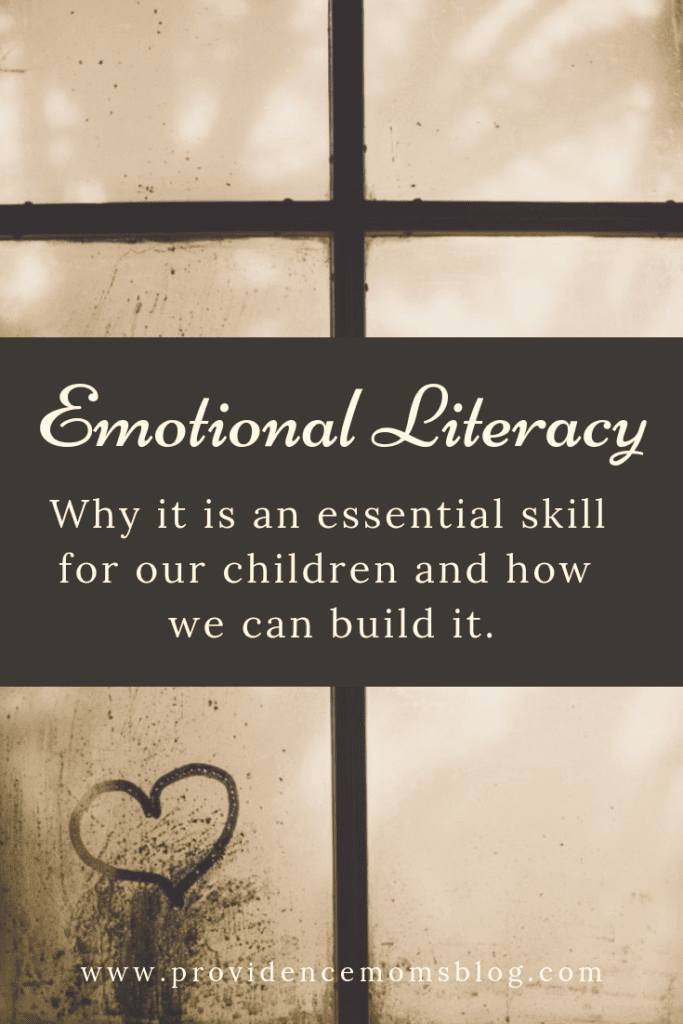
I was recently listening to a radio program in which a father asked his grown son why he hadn’t told the parents about his long term struggles with depression. The son had difficulty answering the question; “I knew you would support me” he mused, “I always knew you would run through a wall to get me the help I needed”. After a thoughtful pause, he finally concluded that maybe he kept the depression hidden because he felt like he was disappointing his parents.
As a mother, hearing this broke my heart. But as a child, I could relate to it. I call my parents every single day. Multiple times most days. I call to tell them funny stories about their grandchildren, and to tell them that I ran out of coffee. I share the silliest of details of my life with them, there is very little that they do not know about my world. Except when I’m truly hurting. Even as close as we are, I struggle to share my pain with them.
In wondering about this I got to thinking about the way we talk to our children when they are in pain.
“Calm down. It’s ok. You’ll be fine. There’s nothing to be afraid of. You’re ok. It’s not a big deal. Forget about it. Just stop crying.”
The words slip off our tongue so easily. I’m a therapist, I know better, but still, I find myself saying them, or variations of them. At first glance, it doesn’t seem like such a big deal, but the subtext of those messages is powerful and dangerous.
What exactly are we telling our kids?
Pain.
Not ok
Sadness.
Not ok
Anger.
Not ok
Disappointment
Not ok.
Frustration.
Not ok.
Happiness, Joy, Curiosity, Love? Go for it. Let those feelings out. Shout them from the rooftops and I will gladly share them with you.
But hard feelings?
Shut.
It.
Down.
I truly believe that as parents we do this with the best of intentions. We attempt to rush our children past the hard feelings in part because we know how painful they can be and want to make it better as quickly as possible. But we also do it because our children’s pain is so hard to bear. Seeing our children in pain breaks open our hearts in a particularly unbearable way. And so we try to usher them past it and convince ourselves we’re helping them develop grit.
But children are so, so savvy. They learn quickly what their parents can and cannot handle. It is not long before they realize that mom and dad will high five them when they are proud and laugh with them when they silly but as soon as the tears and rage come out our discomfort will go through the roof and our number one goal will be to squash it.
And those sweet babies of ours love us so much. They do not want us to feel pain either, and as they realize that we cannot handle their pain, they begin to hide it away from us.
The son on the radio seemed to have a strong relationship with his parents. He seemed to love them and feel loved and supported by them. He said “I didn’t tell you because I didn’t want to disappoint you” but I suspect what he really meant was “I didn’t tell you because I didn’t want to hurt you”.
I really wanted to end that post right there. I wanted to leave you feeling the feelings. Leave you with the weight of how alone our children might feel if we don’t learn to tolerate and make space for their pain. But I think on some level most of us already know all of this, we just don’t quite know what to do instead. So here are some actionable ideas.
Let them cry. Some kids will want to cry on your lap & some will want to be alone. Try to read your kids cues (or just listen to them when they yell “I want to be alone”; a particular challenge for this therapist mama), but stay nearby and make sure they know you are there if they need you. The most important part is to ensure they know that there is nothing inherently wrong with crying.
Say “I know.” When something has happened that sends one of my children into a meltdown I try to convey to them that I understand the enormity of their feelings. I try to avoid telling them “it was a 30 cent doctors office toy, would you just get over it already???” and instead say “I know. I know you’re sad. I know you’re disappointed it broke.” I try to avoid to urge to fix everything (particularly those obnoxious 30 cent doctors office toys) and instead just sit with them in their pain.
Say “And then what?” This is my favorite parenting phrase (variations include “really?”). It prevents me from filling in the rest of the story on my own. It prevents me from assuming, from jumping to conclusions about either the situation or my child’s feelings about it. It simply opens up space for my child to share with me. “Mom! Joe sat with me today!” If I’d followed that up with “How fun!” instead of “And then what?”. I wouldn’t have learned that in fact, Joe has been teasing my kid every day.
Share your emotions with them. It’s important to do this in an age appropriate way – probably don’t tell your toddler that you’re seething with rage because your husband is playing golf with his brother again. But it’s fine to say “I’m feeling disappointed that daddy isn’t going to the park with us” or “I’m a little jealous that daddy gets to see his brother today, I miss my brother and would like to see him too”. This does so many things. It helps your child understand why you’re acting weird (because trust me, they are picking up on the vibes you are putting out). It also begins to teach them emotional literacy; sharing our feelings helps them to begin to understand that “mad” is different than “frustrated”.
These things won’t necessarily come easily. It takes time to change patterns of behavior and reaction that are hard wired into most of us. But. Opening ourselves up to share in all the various feelings our children have will show them that big feelings, while hard and uncomfortable, aren’t something we need to hide or run away from. We can walk through it together and we will come out on the other side.













